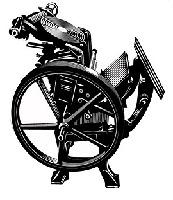- Posts: 2836
- Thank you received: 25
Federal Funding for NPR & PBS?
- pineinthegrass
-

- Mountain Legend
-

SS109 wrote:
LadyJazzer wrote: I'll agree to forcing PBS & NPR to be supported with private funds when they stop taxing me for everyone else's "male bonding experience" with the new Broncos and Rockies sports stadiums.
One key difference? The local people got to vote to increase their taxes to support the new stadiums, what percent of the federal budget do we get to decide directly? 0%
Another difference is stadiums can generate jobs and local revenue through taxes and money spent by visitors in and near the stadium. Plus communities see a certain prestige or image in having a professional sports franchise. Is it worth the taxes paid to get the stadium? Well hopefully that's what the people can vote on.
And not that it really matters, but aren't stadiums often paid for by taxes largely on visitors in the form of taxes such as a room tax or rental tax? At least I've often seen rather large taxes added to my bills when I travel and I've been told it was to pay for their city's new stadium.
Please Log in or Create an account to join the conversation.
- LadyJazzer
-

- Mountain Legend
-

- Posts: 14880
- Thank you received: 27
Cities in Denial: The False Promise of Subsidized Tourist and Entertainment Complexes
http://www.heritage.org/research/report ... se-promise
Want Economic Stimulus? Don’t Build a Sports Stadium!
http://nevadanewsandviews.com/2010/07/1 ... s-stadium/
...and this page is the kicker...
The Sports Page: Corporate Welfare, Publicly Funded Stadiums
http://www.akdart.com/sports.html
Please Log in or Create an account to join the conversation.
- FredHayek
-
 Topic Author
Topic Author
- Mountain Legend
-

- Posts: 30200
- Thank you received: 178
Thomas Sowell: There are no solutions, just trade-offs.
Please Log in or Create an account to join the conversation.
- pineinthegrass
-

- Mountain Legend
-

- Posts: 2836
- Thank you received: 25
LadyJazzer wrote: The rich owners (and the city governments) have been trying to sell that load of hooey for years... The economics doesn't fly...
Cities in Denial: The False Promise of Subsidized Tourist and Entertainment Complexes
http://www.heritage.org/research/report ... se-promise
Want Economic Stimulus? Don’t Build a Sports Stadium!
http://nevadanewsandviews.com/2010/07/1 ... s-stadium/
...and this page is the kicker...
The Sports Page: Corporate Welfare, Publicly Funded Stadiums
http://www.akdart.com/sports.html
My point is that stadiums do generate jobs and income and I don't see that contridicted in those links. They do make strong arguments that the costs far outweigh the benifits. And that's why I asked if it was worth it, and that hopefully the voters can decide.
The team owners do have a great position in that they can threaten to leave a city and get cities to compete with each other to see who will provide the most public funds. I can't think of a solution to that off the top of my head. It's kind of like the problem the team owners themselves have when they bid outrageous amounts for players and guarantee them money whether they play or not. At least in their case they've come up with complicated methods to protect them from themselves with things like rookie pay scales and luxury tax for too high a payroll. I'm not sure what cities can do to protect them from their own stupidity. But hey, if it's the will of the voters then so be it I guess.
Now, so far as NPR and PBS goes, I think it's safe to say that the money the federal government provides does produce jobs in those companies. Does it produce revenue for the tax payers like a stadium could? That I don't see, but I might be missing something. They do produce entertainment as does a stadium. Is it worth it to the taxpayers? Obviously some think yes, and some think no.
Please Log in or Create an account to join the conversation.
- LadyJazzer
-

- Mountain Legend
-

- Posts: 14880
- Thank you received: 27
pineinthegrass wrote: They do produce entertainment as does a stadium. Is it worth it to the taxpayers? Obviously some think yes, and some think no.
Which was MY point... I think they do, but I'm one of those people who think they are a helluva lot more "fair and balanced" than FauxNews...(and yes, I know FauxNews is not Federally funded or taxpayer supported... just RNC, Rupert Murdoch, Roger Ailes, and Koch Brothers supported...)
Please Log in or Create an account to join the conversation.
- PrintSmith
-

- Mountain Legend
-

- Posts: 5692
- Thank you received: 40
Not true at all. If the slavery question had been decided by a direct vote of the people, there would have been no slavery under the Constitution at all. If left to a vote of the delegates who wrote the Constitution it would have been prohibited as well. Of course, there would not have been 13 states in the union at that point, but to suggest that the majority of the people, or even of those who penned the Constitution, approved of the practice is simply historically inaccurate.LadyJazzer wrote: That's why it's a REPUBLIC and NOT a DEMOCRACY... We send our representatives to Washington and they VOTE FOR US. I don't WANT a federal government that is ruled by a "majority vote"...If that were the case, we'd still have slavery.
Please Log in or Create an account to join the conversation.
- LadyJazzer
-

- Mountain Legend
-

- Posts: 14880
- Thank you received: 27
(They repealed Prohibition, as I recall, and THAT was to correct a "noble mistake"...)
Please Log in or Create an account to join the conversation.
- FredHayek
-
 Topic Author
Topic Author
- Mountain Legend
-

- Posts: 30200
- Thank you received: 178
There has been a campaign for the Feds to also support local papers. Luckily it hasn't gained any traction.
Thomas Sowell: There are no solutions, just trade-offs.
Please Log in or Create an account to join the conversation.
- Nmysys
-

- Mountain Legend
-

- Posts: 4563
- Thank you received: 0
By JIM DEMINT
When presidents of government-funded broadcasting are making more than the president of the United States, it's time to get the government out of public broadcasting.
While executives at the Public Broadcasting Service (PBS) and National Public Radio (NPR) are raking in massive salaries, the organizations are participating in an aggressive lobbying effort to prevent Congress from saving hundreds of millions of dollars each year by cutting their subsidies. The so-called commercial free public airwaves have been filled with pleas for taxpayer cash. The Association of Public Television Stations has hired lobbyists to fight the cuts. Hundreds of taxpayer-supported TV, radio and Web outlets have partnered with an advocacy campaign to facilitate emails and phone calls to Capitol Hill for the purpose of telling members of Congress, "Public broadcasting funding is too important to eliminate!"
PBS President Paula Kerger even recorded a personal television appeal that told viewers exactly how to contact members of Congress in order to "let your representative know how you feel about the elimination of funding for public broadcasting." But if PBS can pay Ms. Kerger $632,233 in annual compensation—as reported on the 990 tax forms all nonprofits are required to file—surely it can operate without tax dollars.
Please Log in or Create an account to join the conversation.






